
More 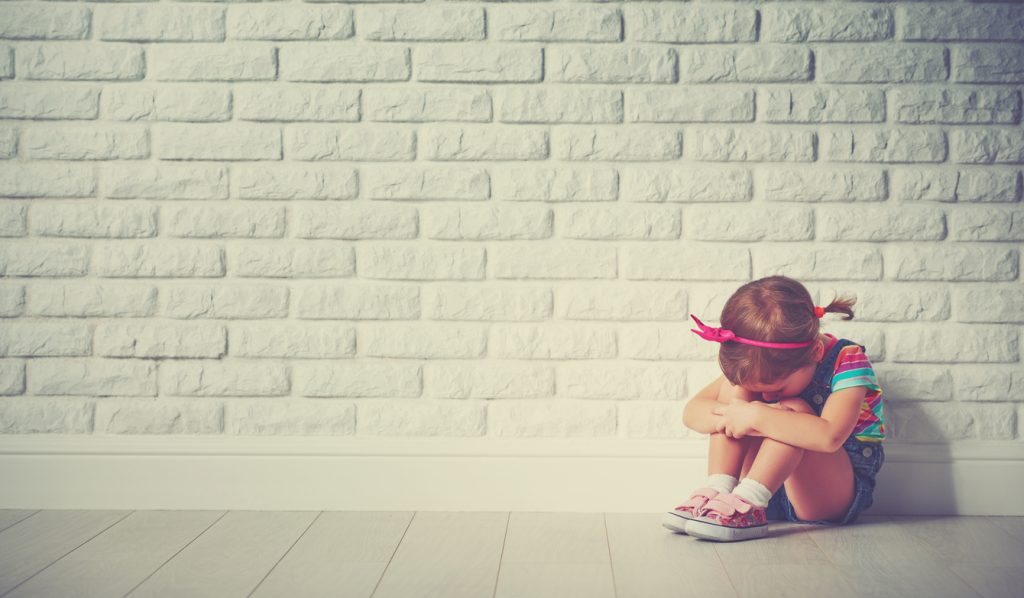 Intro: "Depression was once thought to be an impossible ailment for young children. Yet research has found that depression in young children is real and can be identified as young as two years of age. The diagnosis, though rare, is becoming more acceptable in child psychiatry." Read more
Common signs to watch for:
• Pervasive, unfounded sadness
• Lack of joy
• Guilt or internalized shame
• Marked anxiety that is not warranted
• Easily frustrated
• Frequent illnesses
• Failure to bounce back
• Sadness is evident in different settings with different people
• As a parent, you just know something’s wrong
Read more about these
Intro: "Depression was once thought to be an impossible ailment for young children. Yet research has found that depression in young children is real and can be identified as young as two years of age. The diagnosis, though rare, is becoming more acceptable in child psychiatry." Read more
Common signs to watch for:
• Pervasive, unfounded sadness
• Lack of joy
• Guilt or internalized shame
• Marked anxiety that is not warranted
• Easily frustrated
• Frequent illnesses
• Failure to bounce back
• Sadness is evident in different settings with different people
• As a parent, you just know something’s wrong
Read more about these
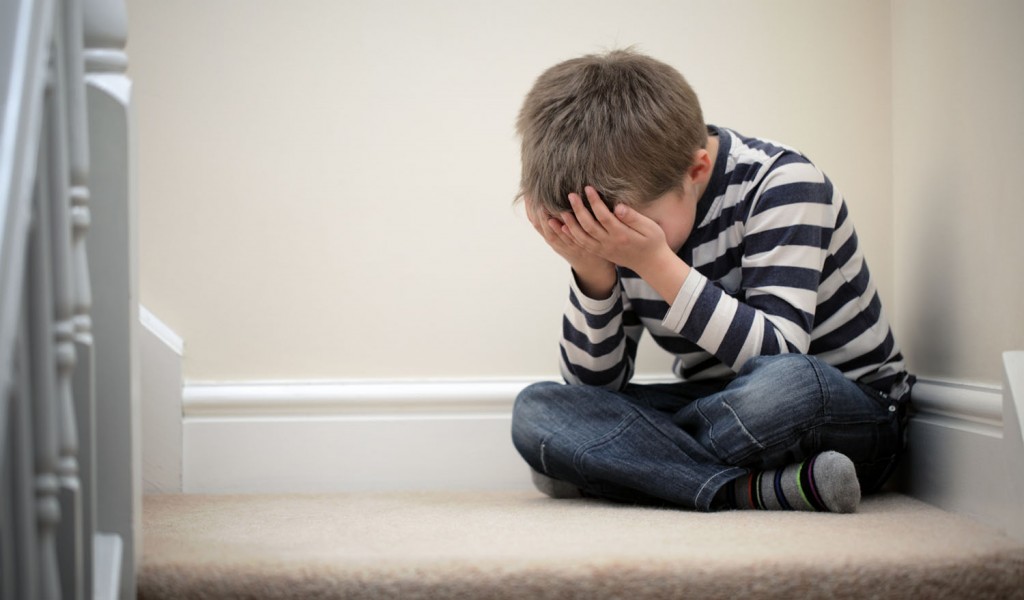 Intro: "Child anxiety is a widely misunderstood condition, especially when the child also has developmental delays. Anxiety doesn’t always look like anxiety. ... Fortunately, there are well-established best practices to help children overcome anxiety and phobias. But they all require effort and patience from adults." Read more
Recommended books:
• Anxiety-Free Kids by Bonnie Zucker
• Generation Stressed: Play-Based Tools to Help Your Child Overcome Anxiety by Michele Kambolis
• What to Do When You Worry Too Much: A Kid’s Guide to Overcoming Anxiety by Dawn Huebner
• The Relaxation and Stress Reduction Workbook for Kids by Lawrence Shapiro and Robin Sprague
• When I Feel Afraid by Cheri Meiners
• I Used To Be Afraid by Laura Vaccaro Seeger
Read more about these
Intro: "Child anxiety is a widely misunderstood condition, especially when the child also has developmental delays. Anxiety doesn’t always look like anxiety. ... Fortunately, there are well-established best practices to help children overcome anxiety and phobias. But they all require effort and patience from adults." Read more
Recommended books:
• Anxiety-Free Kids by Bonnie Zucker
• Generation Stressed: Play-Based Tools to Help Your Child Overcome Anxiety by Michele Kambolis
• What to Do When You Worry Too Much: A Kid’s Guide to Overcoming Anxiety by Dawn Huebner
• The Relaxation and Stress Reduction Workbook for Kids by Lawrence Shapiro and Robin Sprague
• When I Feel Afraid by Cheri Meiners
• I Used To Be Afraid by Laura Vaccaro Seeger
Read more about these
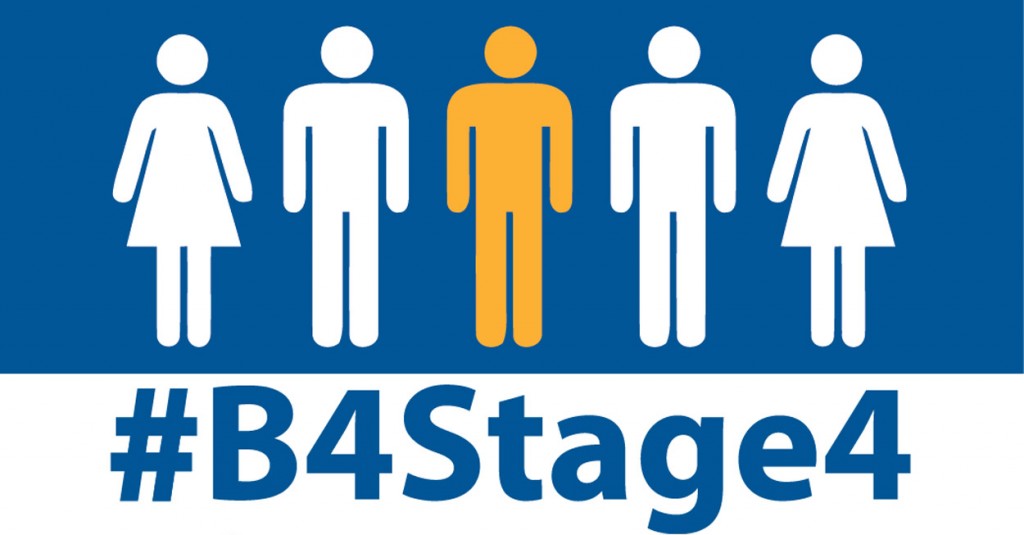 Intro: "Living with mental illness is a struggle. Families and friends who want to help a loved one need information and support. They must know how to connect and help their struggling family member. They must find the balance between helping too much or not enough." Read more
Recommended books:
• Defying Mental Illness 2014 Edition: Finding Recovery with Community Resources and Family Support by Paul Komarek and Andrea Schroer
• The Behavior Code Companion: Strategies, Tools, and Interventions for Supporting Students With Anxiety-Related or Oppositional Behaviors by Jessica Minahan, MEd, BCBA
• Chasing Hope: Navigating the World of the Special Needs Child by Christine Walker
• Overcoming Anxiety and Depression on the Autism Spectrum: A Self-Help Guide Using CBT by Lee A. Wilkinson, PhD
• Better Days, A Mental Health Recovery Workbook by Craig Lewis, Certified Peer Specialist
Read more about these
Intro: "Living with mental illness is a struggle. Families and friends who want to help a loved one need information and support. They must know how to connect and help their struggling family member. They must find the balance between helping too much or not enough." Read more
Recommended books:
• Defying Mental Illness 2014 Edition: Finding Recovery with Community Resources and Family Support by Paul Komarek and Andrea Schroer
• The Behavior Code Companion: Strategies, Tools, and Interventions for Supporting Students With Anxiety-Related or Oppositional Behaviors by Jessica Minahan, MEd, BCBA
• Chasing Hope: Navigating the World of the Special Needs Child by Christine Walker
• Overcoming Anxiety and Depression on the Autism Spectrum: A Self-Help Guide Using CBT by Lee A. Wilkinson, PhD
• Better Days, A Mental Health Recovery Workbook by Craig Lewis, Certified Peer Specialist
Read more about these
 Intro: "The reality of post traumatic stress disorder (PTSD) in children is something most adults want to ignore. We don’t want to believe young children, much less infants, can develop PTSD. But they can. That’s the bad news. But there’s also good news, and it is this: resources and techniques can be employed to keep ordinary childhood traumas from turning into PTSD." Read more
Steps:
• Debrief after a traumatic event
• Administer trauma prevention first aid
• Involve a child life specialist
• Keep pre-verbal and non-verbal children grounded
Read more about these
Intro: "The reality of post traumatic stress disorder (PTSD) in children is something most adults want to ignore. We don’t want to believe young children, much less infants, can develop PTSD. But they can. That’s the bad news. But there’s also good news, and it is this: resources and techniques can be employed to keep ordinary childhood traumas from turning into PTSD." Read more
Steps:
• Debrief after a traumatic event
• Administer trauma prevention first aid
• Involve a child life specialist
• Keep pre-verbal and non-verbal children grounded
Read more about these
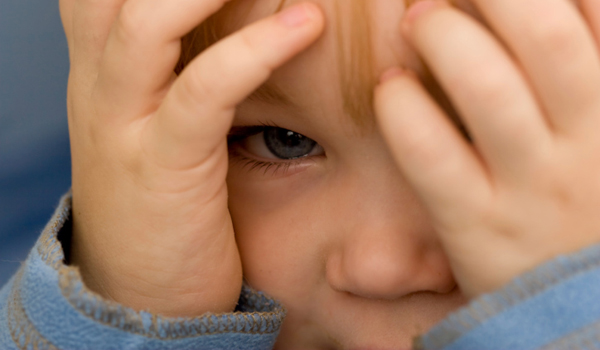 Intro: "How can parents and other adults help children and teens living with undiagnosed, untreated PTSD find the help they need? An understanding of the symptoms of PTSD is a good place to start. Some of the symptoms in children and teens are the same as those for babies and toddlers. These include hypervigilance, emotional distress when reminded of the initial trauma, fear or avoidance of places that remind them of the event, nightmares, and other sleep issues. But other symptoms are more common in children over the age of 3 and into the teen years." Read more
Symptoms to watch for:
• Flashbacks
• Physical reaction
• Denial of event
• Difficulty concentrating
• Startle easily
• A foreshortened sense of the future
• Self-destructive choices, irritability, and impulsiveness
• Depression or an overwhelming sense of sadness and hopelessness
Read more about these
Intro: "How can parents and other adults help children and teens living with undiagnosed, untreated PTSD find the help they need? An understanding of the symptoms of PTSD is a good place to start. Some of the symptoms in children and teens are the same as those for babies and toddlers. These include hypervigilance, emotional distress when reminded of the initial trauma, fear or avoidance of places that remind them of the event, nightmares, and other sleep issues. But other symptoms are more common in children over the age of 3 and into the teen years." Read more
Symptoms to watch for:
• Flashbacks
• Physical reaction
• Denial of event
• Difficulty concentrating
• Startle easily
• A foreshortened sense of the future
• Self-destructive choices, irritability, and impulsiveness
• Depression or an overwhelming sense of sadness and hopelessness
Read more about these
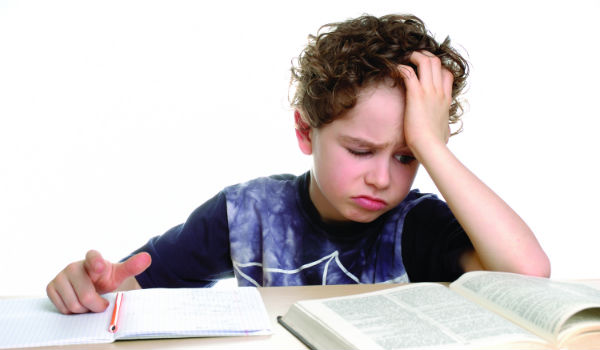 Intro: "Encouraging good mental health is important for all children, but particularly when your child has special needs. Children need to develop the skills to understand and express their emotions from an early age. They need to develop strategies for coping with difficult situations, and ways of channeling energy appropriately." Read more
Tips for encouraging good mental health:
• Acknowledge and label feelings
• Express emotions
• Develop skills
• Channel energy
• Don’t discourage self talk
• Teach coping strategies
• Break card
• What works for you?
• Social stories
• Encourage friendships
• Worry box
• Redirect aggression
• Find the message
• Encourage meaningful choices
Read more about these
Intro: "Encouraging good mental health is important for all children, but particularly when your child has special needs. Children need to develop the skills to understand and express their emotions from an early age. They need to develop strategies for coping with difficult situations, and ways of channeling energy appropriately." Read more
Tips for encouraging good mental health:
• Acknowledge and label feelings
• Express emotions
• Develop skills
• Channel energy
• Don’t discourage self talk
• Teach coping strategies
• Break card
• What works for you?
• Social stories
• Encourage friendships
• Worry box
• Redirect aggression
• Find the message
• Encourage meaningful choices
Read more about these
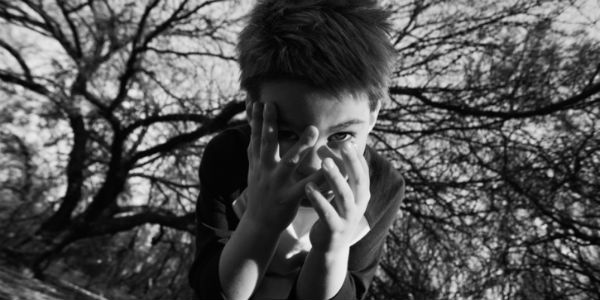 Intro: "Each year more emphasis is placed on getting people of all ages and all walks of life to strive for a mentally healthy lifestyle. Mental health means finding a balance in all aspects of life: social, physical, spiritual, economic and mental. Everyone’s personal balance is different but we all need to be aware that mental illnesses, like physical illnesses, take many forms. The good news about all this is that mental illnesses can be treated; therefore, if you or someone you care for has a mental illness there is hope. Recovery is possible. Resources are available." Read more
Recommended books:
• Gardening for Children with Autism Spectrum Disorders and Special Educational Needs: Engaging with Nature to Combat Anxiety, Promote Sensory Integration and Build Social Skills by Natasha Etherington
• Defying Mental Illness 2013 Edition: Finding Recovery with Community Resources and Family Support by Paul Komarek and Andrea Schroer
• Please Explain “Anxiety” to Me! Simple Biology and Solutions for Children and Parents by Laurie Zelinger, PhD and Jordan Zelinger
• Sam Feels Better Now! An Interactive Story for Children by Jill Osborne, EDS, LPC
Read more about these
Intro: "Each year more emphasis is placed on getting people of all ages and all walks of life to strive for a mentally healthy lifestyle. Mental health means finding a balance in all aspects of life: social, physical, spiritual, economic and mental. Everyone’s personal balance is different but we all need to be aware that mental illnesses, like physical illnesses, take many forms. The good news about all this is that mental illnesses can be treated; therefore, if you or someone you care for has a mental illness there is hope. Recovery is possible. Resources are available." Read more
Recommended books:
• Gardening for Children with Autism Spectrum Disorders and Special Educational Needs: Engaging with Nature to Combat Anxiety, Promote Sensory Integration and Build Social Skills by Natasha Etherington
• Defying Mental Illness 2013 Edition: Finding Recovery with Community Resources and Family Support by Paul Komarek and Andrea Schroer
• Please Explain “Anxiety” to Me! Simple Biology and Solutions for Children and Parents by Laurie Zelinger, PhD and Jordan Zelinger
• Sam Feels Better Now! An Interactive Story for Children by Jill Osborne, EDS, LPC
Read more about these
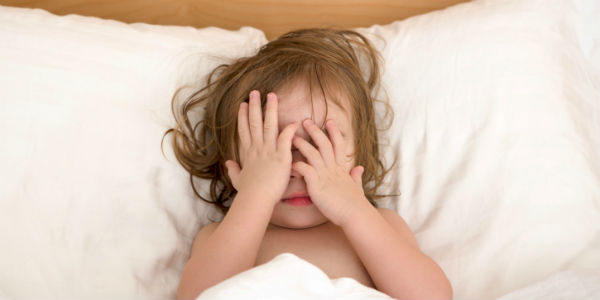 Intro: "Though caring adults wish they could shield children from trauma and from it’s bigger, meaner cousin, post-truamatic stress disorder (PTSD), the truth is that we can’t. But we can become educated about childhood trauma and PTSD to become better advocates on behalf of kids touched by these mental illnesses." Read more
Risk factors:
• Unexpected, unpredictable, or emergency situations
• Age of the child when trauma occurs
• Repeated, significant trauma
• Partial awakening during medical procedures
Read more about these
Intro: "Though caring adults wish they could shield children from trauma and from it’s bigger, meaner cousin, post-truamatic stress disorder (PTSD), the truth is that we can’t. But we can become educated about childhood trauma and PTSD to become better advocates on behalf of kids touched by these mental illnesses." Read more
Risk factors:
• Unexpected, unpredictable, or emergency situations
• Age of the child when trauma occurs
• Repeated, significant trauma
• Partial awakening during medical procedures
Read more about these
8 Helpful Articles on Mental Health Issues for Children with Special Needs
May is Mental Health Month. Since children with special needs often face mental health issues, we've gathered eight posts from our archives to inform and enlighten parents and provide strategies for help and prevention.1. Could Depression Be a Problem for Your Preschooler? 9 Signs to Watch Out For
 Intro: "Depression was once thought to be an impossible ailment for young children. Yet research has found that depression in young children is real and can be identified as young as two years of age. The diagnosis, though rare, is becoming more acceptable in child psychiatry." Read more
Common signs to watch for:
• Pervasive, unfounded sadness
• Lack of joy
• Guilt or internalized shame
• Marked anxiety that is not warranted
• Easily frustrated
• Frequent illnesses
• Failure to bounce back
• Sadness is evident in different settings with different people
• As a parent, you just know something’s wrong
Read more about these
Intro: "Depression was once thought to be an impossible ailment for young children. Yet research has found that depression in young children is real and can be identified as young as two years of age. The diagnosis, though rare, is becoming more acceptable in child psychiatry." Read more
Common signs to watch for:
• Pervasive, unfounded sadness
• Lack of joy
• Guilt or internalized shame
• Marked anxiety that is not warranted
• Easily frustrated
• Frequent illnesses
• Failure to bounce back
• Sadness is evident in different settings with different people
• As a parent, you just know something’s wrong
Read more about these
2. Six Books About Anxiety For Families With Special Needs
 Intro: "Child anxiety is a widely misunderstood condition, especially when the child also has developmental delays. Anxiety doesn’t always look like anxiety. ... Fortunately, there are well-established best practices to help children overcome anxiety and phobias. But they all require effort and patience from adults." Read more
Recommended books:
• Anxiety-Free Kids by Bonnie Zucker
• Generation Stressed: Play-Based Tools to Help Your Child Overcome Anxiety by Michele Kambolis
• What to Do When You Worry Too Much: A Kid’s Guide to Overcoming Anxiety by Dawn Huebner
• The Relaxation and Stress Reduction Workbook for Kids by Lawrence Shapiro and Robin Sprague
• When I Feel Afraid by Cheri Meiners
• I Used To Be Afraid by Laura Vaccaro Seeger
Read more about these
Intro: "Child anxiety is a widely misunderstood condition, especially when the child also has developmental delays. Anxiety doesn’t always look like anxiety. ... Fortunately, there are well-established best practices to help children overcome anxiety and phobias. But they all require effort and patience from adults." Read more
Recommended books:
• Anxiety-Free Kids by Bonnie Zucker
• Generation Stressed: Play-Based Tools to Help Your Child Overcome Anxiety by Michele Kambolis
• What to Do When You Worry Too Much: A Kid’s Guide to Overcoming Anxiety by Dawn Huebner
• The Relaxation and Stress Reduction Workbook for Kids by Lawrence Shapiro and Robin Sprague
• When I Feel Afraid by Cheri Meiners
• I Used To Be Afraid by Laura Vaccaro Seeger
Read more about these
3. Five Books with Encouragement and Support for Mental Health Issues and Wellness
 Intro: "Living with mental illness is a struggle. Families and friends who want to help a loved one need information and support. They must know how to connect and help their struggling family member. They must find the balance between helping too much or not enough." Read more
Recommended books:
• Defying Mental Illness 2014 Edition: Finding Recovery with Community Resources and Family Support by Paul Komarek and Andrea Schroer
• The Behavior Code Companion: Strategies, Tools, and Interventions for Supporting Students With Anxiety-Related or Oppositional Behaviors by Jessica Minahan, MEd, BCBA
• Chasing Hope: Navigating the World of the Special Needs Child by Christine Walker
• Overcoming Anxiety and Depression on the Autism Spectrum: A Self-Help Guide Using CBT by Lee A. Wilkinson, PhD
• Better Days, A Mental Health Recovery Workbook by Craig Lewis, Certified Peer Specialist
Read more about these
Intro: "Living with mental illness is a struggle. Families and friends who want to help a loved one need information and support. They must know how to connect and help their struggling family member. They must find the balance between helping too much or not enough." Read more
Recommended books:
• Defying Mental Illness 2014 Edition: Finding Recovery with Community Resources and Family Support by Paul Komarek and Andrea Schroer
• The Behavior Code Companion: Strategies, Tools, and Interventions for Supporting Students With Anxiety-Related or Oppositional Behaviors by Jessica Minahan, MEd, BCBA
• Chasing Hope: Navigating the World of the Special Needs Child by Christine Walker
• Overcoming Anxiety and Depression on the Autism Spectrum: A Self-Help Guide Using CBT by Lee A. Wilkinson, PhD
• Better Days, A Mental Health Recovery Workbook by Craig Lewis, Certified Peer Specialist
Read more about these
4. Four Ways to Prevent Post-Traumatic Stress Disorder in Children
 Intro: "The reality of post traumatic stress disorder (PTSD) in children is something most adults want to ignore. We don’t want to believe young children, much less infants, can develop PTSD. But they can. That’s the bad news. But there’s also good news, and it is this: resources and techniques can be employed to keep ordinary childhood traumas from turning into PTSD." Read more
Steps:
• Debrief after a traumatic event
• Administer trauma prevention first aid
• Involve a child life specialist
• Keep pre-verbal and non-verbal children grounded
Read more about these
Intro: "The reality of post traumatic stress disorder (PTSD) in children is something most adults want to ignore. We don’t want to believe young children, much less infants, can develop PTSD. But they can. That’s the bad news. But there’s also good news, and it is this: resources and techniques can be employed to keep ordinary childhood traumas from turning into PTSD." Read more
Steps:
• Debrief after a traumatic event
• Administer trauma prevention first aid
• Involve a child life specialist
• Keep pre-verbal and non-verbal children grounded
Read more about these
5. Eight Symptoms of Post Traumatic Stress Disorder in Children and Teens
 Intro: "How can parents and other adults help children and teens living with undiagnosed, untreated PTSD find the help they need? An understanding of the symptoms of PTSD is a good place to start. Some of the symptoms in children and teens are the same as those for babies and toddlers. These include hypervigilance, emotional distress when reminded of the initial trauma, fear or avoidance of places that remind them of the event, nightmares, and other sleep issues. But other symptoms are more common in children over the age of 3 and into the teen years." Read more
Symptoms to watch for:
• Flashbacks
• Physical reaction
• Denial of event
• Difficulty concentrating
• Startle easily
• A foreshortened sense of the future
• Self-destructive choices, irritability, and impulsiveness
• Depression or an overwhelming sense of sadness and hopelessness
Read more about these
Intro: "How can parents and other adults help children and teens living with undiagnosed, untreated PTSD find the help they need? An understanding of the symptoms of PTSD is a good place to start. Some of the symptoms in children and teens are the same as those for babies and toddlers. These include hypervigilance, emotional distress when reminded of the initial trauma, fear or avoidance of places that remind them of the event, nightmares, and other sleep issues. But other symptoms are more common in children over the age of 3 and into the teen years." Read more
Symptoms to watch for:
• Flashbacks
• Physical reaction
• Denial of event
• Difficulty concentrating
• Startle easily
• A foreshortened sense of the future
• Self-destructive choices, irritability, and impulsiveness
• Depression or an overwhelming sense of sadness and hopelessness
Read more about these
6. Fourteen Mental Health Tips for Children with Learning Disabilities
 Intro: "Encouraging good mental health is important for all children, but particularly when your child has special needs. Children need to develop the skills to understand and express their emotions from an early age. They need to develop strategies for coping with difficult situations, and ways of channeling energy appropriately." Read more
Tips for encouraging good mental health:
• Acknowledge and label feelings
• Express emotions
• Develop skills
• Channel energy
• Don’t discourage self talk
• Teach coping strategies
• Break card
• What works for you?
• Social stories
• Encourage friendships
• Worry box
• Redirect aggression
• Find the message
• Encourage meaningful choices
Read more about these
Intro: "Encouraging good mental health is important for all children, but particularly when your child has special needs. Children need to develop the skills to understand and express their emotions from an early age. They need to develop strategies for coping with difficult situations, and ways of channeling energy appropriately." Read more
Tips for encouraging good mental health:
• Acknowledge and label feelings
• Express emotions
• Develop skills
• Channel energy
• Don’t discourage self talk
• Teach coping strategies
• Break card
• What works for you?
• Social stories
• Encourage friendships
• Worry box
• Redirect aggression
• Find the message
• Encourage meaningful choices
Read more about these
7. Four Adults' and Children’s Books for Mental Health Awareness Month
 Intro: "Each year more emphasis is placed on getting people of all ages and all walks of life to strive for a mentally healthy lifestyle. Mental health means finding a balance in all aspects of life: social, physical, spiritual, economic and mental. Everyone’s personal balance is different but we all need to be aware that mental illnesses, like physical illnesses, take many forms. The good news about all this is that mental illnesses can be treated; therefore, if you or someone you care for has a mental illness there is hope. Recovery is possible. Resources are available." Read more
Recommended books:
• Gardening for Children with Autism Spectrum Disorders and Special Educational Needs: Engaging with Nature to Combat Anxiety, Promote Sensory Integration and Build Social Skills by Natasha Etherington
• Defying Mental Illness 2013 Edition: Finding Recovery with Community Resources and Family Support by Paul Komarek and Andrea Schroer
• Please Explain “Anxiety” to Me! Simple Biology and Solutions for Children and Parents by Laurie Zelinger, PhD and Jordan Zelinger
• Sam Feels Better Now! An Interactive Story for Children by Jill Osborne, EDS, LPC
Read more about these
Intro: "Each year more emphasis is placed on getting people of all ages and all walks of life to strive for a mentally healthy lifestyle. Mental health means finding a balance in all aspects of life: social, physical, spiritual, economic and mental. Everyone’s personal balance is different but we all need to be aware that mental illnesses, like physical illnesses, take many forms. The good news about all this is that mental illnesses can be treated; therefore, if you or someone you care for has a mental illness there is hope. Recovery is possible. Resources are available." Read more
Recommended books:
• Gardening for Children with Autism Spectrum Disorders and Special Educational Needs: Engaging with Nature to Combat Anxiety, Promote Sensory Integration and Build Social Skills by Natasha Etherington
• Defying Mental Illness 2013 Edition: Finding Recovery with Community Resources and Family Support by Paul Komarek and Andrea Schroer
• Please Explain “Anxiety” to Me! Simple Biology and Solutions for Children and Parents by Laurie Zelinger, PhD and Jordan Zelinger
• Sam Feels Better Now! An Interactive Story for Children by Jill Osborne, EDS, LPC
Read more about these
8. PTSD in Kids: What Risk Factors Exist?
 Intro: "Though caring adults wish they could shield children from trauma and from it’s bigger, meaner cousin, post-truamatic stress disorder (PTSD), the truth is that we can’t. But we can become educated about childhood trauma and PTSD to become better advocates on behalf of kids touched by these mental illnesses." Read more
Risk factors:
• Unexpected, unpredictable, or emergency situations
• Age of the child when trauma occurs
• Repeated, significant trauma
• Partial awakening during medical procedures
Read more about these
Intro: "Though caring adults wish they could shield children from trauma and from it’s bigger, meaner cousin, post-truamatic stress disorder (PTSD), the truth is that we can’t. But we can become educated about childhood trauma and PTSD to become better advocates on behalf of kids touched by these mental illnesses." Read more
Risk factors:
• Unexpected, unpredictable, or emergency situations
• Age of the child when trauma occurs
• Repeated, significant trauma
• Partial awakening during medical procedures
Read more about these 

